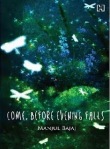
Unbordered Memories; Sindhi stories of Partition translated by Rita Kothari
Rita Kothari has selected and translated into English narratives by first-generation Sindhi writers from both sides of the border exploring the Sindhi experience of Partition and the creation of Pakistan.
Unlike those displaced by the Partition of Punjab and Bengal, the Sindhi Hindus did not have a place to call their own when they arrived in India, since Sindh was retained entirely by Pakistan.
In Mohan Kalpana’s story, ‘In Exile’, an Indian Sahib explains the precarious condition of a refugee from Sindh. “Right now, you are neither in India nor Pakistan. You are a refugee. A refugee! You do not have a home either here or there.” Confused and pained Joharmal in Narayan Bharti’s ‘The Claim’ expresses poignantly the Sindhi experience of losing forever not just farmlands or a house, but an entire ethos, lost friends and neighbours, streets, rivers of a homeland which belongs to every Sindhi.
Apart from the recurring Partition fiction trope of a difficult and sorrowful journey of millions of people leaving their homeland, these stories also explore how those who stayed behind in the new Pakistan had to come to terms with a suddenly unrecognisable nation. According to Acharya Kripalani, Sindhis of all faiths were “powerfully influenced by Sufi and Vedantic thoughts. This made for tolerance.”
The threat to Sindhi Hindus after the formation of Pakistan became strong after Muslim immigrants driven out from the rest of India entered Sindh. These stories explore how hatred was spread amongst a peaceful and prosperous community. Khanu the barber in Sheikh Ayaz’s ‘The Neighbour’ “began to wonder how he would be able to slit the throats of those he had spent hours with, eating and drinking and making merry in their company.” Vishnu Bhatia in ‘The Uprooted’ portrays the spread of communal hatred and the seemingly foolish yet touching refusal of an old refugee to accept this. “How long could anyone have lasted shrouded in fear? People who had never thought of themselves as Hindus or Muslims now knew that Hindus were infidels, and Muslims, scoundrels. So much for brotherhood! Hindus have no right to live on this land. A political decision managed to do what pandits and moulvis could not. Hatred had spread like poison and an entire community was uprooted from its land and thrown into the waters of the Arabian Sea.”
Today, Kothari points out, the Sindhi community has spread out all over the world, successfully establishing themselves in business and various professions. Yet even those living in India cannot visit Sindh or even afford to talk about it, since Sindh now lies in what the rest of India considers a hostile foreign country. Sindh is now an idea without physical dimensions, a place which Sindhis cannot even visit in reality or memory. This perhaps explains why Sindhis have maintained silence about their past and rarely shared their wounds and stories.
As a sociological and historical document, this collection is invaluable. Capturing the finer nuances of Indian languages in English translations is always a huge challenge. While the translation is capable, these stories do by and large read like writing by a single author, and not by the several writers whose styles and viewpoints comprise this collection. (review published in Deccan Herald)





